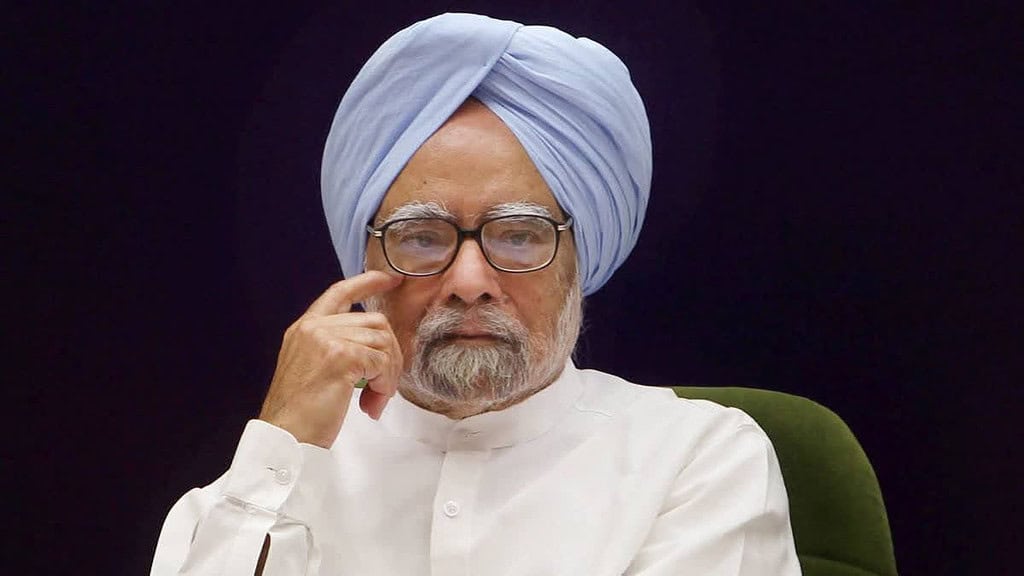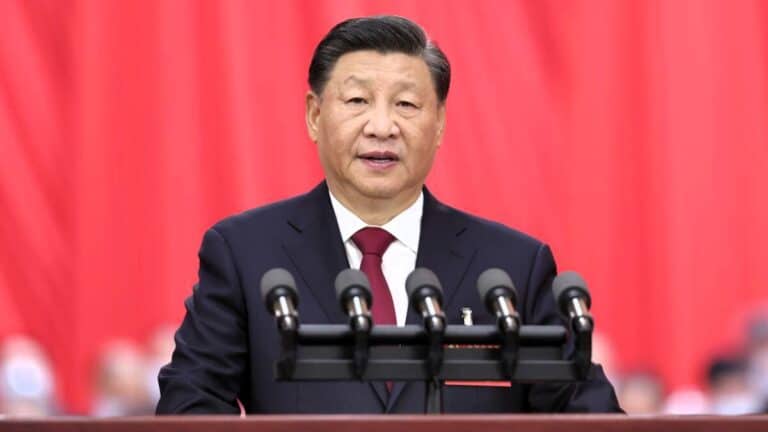Manmohan Singh stands as a beacon of humility and intellect in Indian politics. Known for his soft-spoken demeanor and towering achievements, he transformed India’s economic landscape while holding firm to his values. His story is a testament to perseverance, intellect, and quiet strength, a rarity in the tumultuous world of politics.

Manmohan Singh Bio Data
| Attribute | Details |
|---|---|
| Full Name | Manmohan Singh |
| Date of Birth | September 26, 1932 |
| Place of Birth | Gah, Punjab (now in Pakistan) |
| Date of Death | December 26, 2024 |
| Place of Death | New Delhi, India |
| Nationality | Indian |
| Spouse | Gursharan Kaur |
| Children | Three daughters: Upinder Singh, Daman Singh, and Amrit Singh |
| Education | – Punjab University (Undergraduate)- University of Cambridge (Economics, BA Hons.)- University of Oxford (DPhil, Economics) |
| Profession | Economist, Academic, Politician |
| Political Party | Indian National Congress |
| Languages Known | English, Punjabi, Hindi |
| Notable Positions Held | – Finance Minister of India (1991–1996)- Prime Minister of India (2004–2014)- Governor of the Reserve Bank of India (1982–1985) |
| Key Achievements | – Architect of India’s Economic Liberalization in 1991- Signed the Indo-US Civil Nuclear Agreement- Introduced major social welfare programs as Prime Minister |
| Awards and Honors | – Padma Vibhushan (1987)- World Statesman Award (2010)- Numerous honorary doctorates globally |
| Books and Publications | Authored several papers and articles on economics and trade policies |
| Hobbies | Reading, Writing, and Studying Economics |
| Known For | Humility, Integrity, Economic Reforms, and Consensus Leadership |
Manmohan Singh’s Early Life and Education
Birth and Childhood in Undivided India
Born on September 26, 1932, in Gah, Punjab (now in Pakistan), Singh’s childhood was shaped by the backdrop of pre-independence India. A partitioned nation later displaced his family, embedding resilience early in his life.
Academic Brilliance: From Punjab to Cambridge
A relentless quest for knowledge took him from Punjab University to the esteemed halls of Cambridge. There, Singh laid the foundation for his illustrious career with an economics degree that reflected his sharp intellect.
The Making of a Scholar: Doctorate at Oxford
Singh’s academic journey culminated at Oxford University, where his doctoral research delved into India’s trade policies. His thesis became a reference point for policymakers globally.
Manmohan Singh’s Personal Life
A Love Story with Gursharan Kaur
Manmohan Singh’s life partner, Gursharan Kaur, played a pivotal role in his personal and public life. Their enduring partnership was marked by mutual respect and unwavering support.
Family Values and Life as a Husband and Father
Despite his demanding career, Manmohan Singh remained deeply committed to his family, exemplifying the balance between personal and professional responsibilities.
Humility and Simplicity in Personal Life
Known for his modest lifestyle, Manmohan Singh shunned opulence, living as an exemplar of simplicity.
Entry into Public Service
Early Work with the United Nations
His early professional years at the United Nations molded his global outlook and honed his economic acumen.
Transition to Indian Bureaucracy
Manmohan Singh joined India’s bureaucracy, where his expertise quickly garnered attention, eventually positioning him at the helm of economic policy.
A Vision for Economic Reforms
He foresaw India’s economic potential and dedicated himself to laying the groundwork for liberalization.
Role as an Economist
Architect of India’s Economic Liberalization
In 1991, India faced a severe economic crisis that threatened its stability. Manmohan Singh, then the Finance Minister, introduced sweeping reforms that dismantled decades of protectionist policies. His policies included deregulation, reducing trade barriers, and encouraging foreign investments, creating a thriving market-driven economy.
Influences from Global Economic Thinkers
Drawing inspiration from economic theorists like Keynes and his global contemporaries, Manmohan Singh adapted their principles to suit India’s unique challenges. His ability to bridge theoretical economics with practical governance set him apart.
Impact of 1991 Reforms on Indian Society
The reforms spearheaded by Singh not only stabilized India’s economy but also ushered in an era of rapid growth. Millions were lifted out of poverty, and India emerged as a global economic player, thanks to his bold decisions.
Manmohan Singh’s Political Career
Joining the Indian National Congress
Manmohan Singh’s entry into politics was unconventional, with no background in mass politics or electoral campaigns. His intellectual prowess caught the attention of the Congress leadership, leading to his induction as a key advisor.
Appointment as India’s Finance Minister
As Finance Minister, Singh’s tenure was marked by visionary policies that set the stage for economic globalization. His budget speeches became milestones in India’s economic history.
The Unlikely Journey to the Prime Minister’s Office
In 2004, Manmohan Singh was unexpectedly chosen as the Prime Minister, symbolizing the triumph of intellect over populism. His calm and composed persona reassured a nation seeking stability.
Prime Ministerial Tenure
First Term: Achievements and Challenges
Singh’s first term was a period of robust economic growth, with GDP growth rates soaring. His government launched flagship programs like the National Rural Employment Guarantee Act (NREGA), aimed at poverty alleviation.
Second Term: Navigating Turbulence and Controversies
The second term brought significant challenges, including corruption scandals and policy paralysis. Despite criticism, Manmohan Singh maintained his integrity, often letting his work speak louder than words.
His Leadership Style: Consensus over Confrontation
Manmohan Singh was a leader who preferred building consensus rather than resorting to confrontation. His collaborative approach helped him navigate the complexities of coalition politics.
Manmohan Singh’s Achievements as Prime Minister
India’s Economic Growth and Global Standing
Under Singh’s stewardship, India became one of the fastest-growing economies in the world. His policies attracted foreign investment and expanded the middle class.
The Indo-US Civil Nuclear Agreement
A landmark achievement of his tenure, the Indo-US Civil Nuclear Agreement, ended India’s nuclear isolation and strengthened its position on the global stage.
Social Welfare Schemes and Infrastructure Projects
Singh’s government introduced schemes like the Right to Education Act and accelerated infrastructure projects, laying the groundwork for sustained development.
Challenges and Criticism
Handling of Corruption Scandals
Singh’s tenure faced accusations of corruption, particularly in the telecom and coal sectors. While he was personally untainted, these scandals tarnished his administration’s image.
Perception of Weak Leadership
Critics labeled Singh as a “puppet” of the Congress leadership, questioning his decision-making authority. However, his supporters argued that his quiet diplomacy was often misunderstood.
Defending Policies Amidst Political Opposition
Manmohan Singh consistently defended his policies with logic and data, even when facing fierce opposition in Parliament.
Legacy as a Statesman
His Contribution to Indian Democracy
Manmohan Singh upheld democratic values, ensuring free and fair governance even during turbulent times. His commitment to transparency and accountability remains a benchmark.
Recognition by International Leaders and Institutions
World leaders, including Barack Obama and Vladimir Putin, lauded Singh’s vision and integrity. His economic policies received accolades from institutions like the IMF and World Bank.
The Enduring Impact of His Policies
Singh’s reforms have a lasting impact, with India continuing to reap the benefits of his vision.
Manmohan Singh’s Life Beyond Politics
Return to Academia and Writing
After stepping down as Prime Minister, Singh returned to academia, sharing his insights on economics and governance through lectures and articles.
Advisory Roles and Continued Public Engagement
He continues to advise on policy matters and participates in discussions on India’s economic future.
Manmohan Singh’s Leadership Philosophy
Quiet Diplomacy and Policy-driven Governance
Manmohan Singh believed in letting actions speak louder than words, focusing on delivering results rather than engaging in rhetoric.
Advocating for Inclusive Growth
His policies consistently aimed at bridging the gap between the rich and the poor, ensuring equitable growth.
Bridging Ideological Divides
Singh’s ability to work with diverse political ideologies underscored his commitment to national interest over partisanship.
Public Perception
A Man of Few Words and Deep Thoughts
Singh’s reticent nature often masked his profound intellect, making him a respected yet enigmatic figure.
Admiration for Integrity and Work Ethic
Despite political controversies, Singh’s personal integrity remained unimpeachable, earning him admiration across party lines.
Mixed Reactions to His Political Legacy
While some view him as a transformative leader, others critique his inability to counter political turbulence effectively.
Awards and Honors
National and International Recognition
Manmohan Singh received several prestigious awards, including the Padma Vibhushan and the World Statesman Award, highlighting his contributions to India and the world.
Honorary Degrees from Prestigious Institutions
Universities worldwide conferred honorary degrees upon him, acknowledging his intellectual and political contributions.
Awards Reflecting Economic and Political Contributions
His accolades reflect his dual legacy as an economist and statesman.
The Human Side of a Leader
Stories of Kindness and Compassion
Singh’s humility and compassion touched the lives of those around him, from colleagues to ordinary citizens.
His Bond with Colleagues and Staff
Known for treating everyone with respect, Singh earned the loyalty and admiration of his team.
A Leader Rooted in Empathy
Empathy was the cornerstone of Singh’s leadership, guiding his decisions in public and private life.
Inspirational Lessons from His Life
The Power of Knowledge and Education
Singh’s life underscores the transformative power of education in shaping destinies.
Resilience Amidst Adversity
From partition to political challenges, Singh’s resilience remains an enduring inspiration.
Balancing Ambition with Ethics
He demonstrated that ambition need not come at the cost of integrity.
Comparative Analysis
Comparing Manmohan Singh to Other Global Leaders
Singh’s governance style draws parallels with leaders like Nelson Mandela, who combined intellect with humility.
The Uniqueness of His Political and Economic Vision
His ability to merge economic pragmatism with ethical governance sets him apart in the global arena.
Media Representation
Depictions in Films and Literature
Films and books about Singh often highlight his intellect and enigmatic persona, reflecting public fascination with his leadership.
The Evolution of Public Opinion Over Time
Over the years, public opinion about Singh has evolved, with growing appreciation for his contributions.
Reflections from Contemporaries
Testimonials from Political Allies and Rivals
Many political figures, including rivals, have acknowledged Singh’s integrity and expertise.
Perspectives from Economists and Thinkers
Economists often describe him as a trailblazer who redefined India’s economic trajectory.
Conclusion
Manmohan Singh’s legacy is a tapestry woven with intellect, integrity, and resilience. His life offers valuable lessons on leadership, humility, and the transformative power of education. Future leaders would do well to emulate his example of balancing ambition with ethical governance.
Visit Blogsweneed for more latest News, Updates, and blogs.

Hi, I’m Nathan Cross, a writer and avid reader who loves crafting articles for newspapers and online platforms. Words are my passion, whether I’m telling stories, sharing insights, or sparking conversations. When I’m not writing, you’ll find me lost in a book or out on the baseball field, enjoying the game that keeps me grounded. Writing, reading, and baseball—these are the things that define me.




